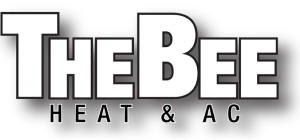Your air conditioner is one of the most important appliances in your home, especially during the hot summer months. It keeps you cool and comfortable, and also improves the air quality and humidity levels in your home. However, like any other appliance, your air conditioner needs regular maintenance to function properly and efficiently. If you neglect to maintain your air conditioner, you may end up with higher energy bills, poor performance, or even costly repairs or replacements.
On This Article
hide
1)
1. Your air conditioner is blowing warm or hot air.
2)
2. Your air conditioner is making strange noises.
3)
3. Your air conditioner is leaking water or refrigerant.
4)
4. Your air conditioner has low airflow.
5)
5. Your air conditioner has bad odors.
6)
6. Your air conditioner cycles on and off frequently.
7)
7. Your air conditioner has high humidity levels.
8)
8. Your air conditioner has increased energy bills.
9)
9. Your air conditioner has frequent breakdowns.
10)
10. Your air conditioner is more than 10 years old.
11)
Conclusion
12)
FAQs
12.1)
What should you do if your air conditioner is blowing warm or hot air?
12.2)
What causes bad odors in an air conditioner, and how can they be fixed?
12.3)
Why is low airflow a sign that your air conditioner needs maintenance?
12.4)
Why does an air conditioner cycle on and off frequently, and how can it be fixed?
How do you know if your air conditioner needs maintenance? Here are 10 signs that indicate that your air conditioner may need some attention from a professional technician.
1. Your air conditioner is blowing warm or hot air.
One of the most obvious signs that your air conditioner needs maintenance is when it fails to cool your home adequately. If you feel warm or hot air coming out of your vents instead of cold air, there may be a problem with the refrigerant level, the compressor, the thermostat, or the ductwork. A technician can diagnose the cause of the problem and fix it accordingly.
2. Your air conditioner is making strange noises.
Another sign that your air conditioner needs maintenance is when it starts making unusual noises that you have not heard before. These noises may include squealing, grinding, rattling, hissing, banging, or humming sounds. These noises may indicate that there are loose or worn parts inside the unit, such as belts, bearings, motors, fans, or coils. A technician can inspect the unit and replace any damaged parts before they cause further damage.
3. Your air conditioner is leaking water or refrigerant.
Your air conditioner produces condensation as part of its normal operation. However, this condensation should be drained away from the unit through a drain line and a drain pan. If you notice water dripping or pooling around your unit indoors or outdoors (depending on where it’s located), there may be a clog in the drain line or a crack in the drain pan. This can cause water damage to your walls, floors, or ceilings if left untreated.
Another type of leak that can occur in your unit is refrigerant leak. Refrigerant is the substance that cools the air inside your unit. If you notice ice forming on the evaporator coil (the part that cools the refrigerant) or on the refrigerant lines (the pipes that carry the refrigerant), there may be a leak in the system. This can reduce the cooling efficiency of your unit and also pose health and environmental risks if exposed to it.
A technician can unclog the drain line, repair the drain pan, or seal the refrigerant leak depending on the source of the problem.
4. Your air conditioner has low airflow.
If you notice that the airflow from your vents is weak or inconsistent, there may be an issue with your fan, your filter, or your ductwork. Your fan is responsible for circulating the cooled air throughout your home. If it is dirty, damaged, or malfunctioning, it will not be able to move enough air. Your filter is responsible for trapping dust, pollen, and other contaminants from entering your system. If it is clogged, dirty, or overdue for replacement, it will restrict airflow and reduce cooling efficiency. Your ductwork is responsible for delivering the cooled air to different rooms in your home. If it has leaks, holes, or blockages, it will lose some of the cooled air along the way.
A technician can clean your fan blades, replace your filter, or seal your ducts depending on the cause of the low airflow.
5. Your air conditioner has bad odors.
If you smell unpleasant odors coming from your vents when you turn on your unit, there may be mold, mildew, bacteria, or fungi growing inside your system or ductwork. These microorganisms thrive in moist and dark environments, and can cause health problems such as allergies, asthma, or respiratory infections if inhaled. They can also damage your system components and reduce their lifespan. A technician can sanitize and deodorize your system and ductwork using special chemicals and equipment.
6. Your air conditioner cycles on and off frequently.
Your air conditioner should cycle on and off periodically to maintain a consistent temperature in your home. However, if you notice that it cycles on and off too frequently or too quickly, there may be a problem with its size, its thermostat, its electrical components, or its refrigerant level. If your unit is too big or too small for your home, it will not be able to cool your home evenly and efficiently. If your thermostat is faulty, dirty, or poorly located, it will not be able to sense the temperature accurately and send the right signals to your unit. If your electrical components such as relays, capacitors, or circuit boards are worn out or damaged, they will cause your unit to malfunction or shut down prematurely. If your refrigerant level is too low or too high, it will affect the cooling capacity and pressure of your unit.
A technician can measure the size of your unit and compare it with the cooling load of your home. They can also check and calibrate your thermostat, replace any faulty electrical components, and adjust your refrigerant level according to the manufacturer’s specifications.
7. Your air conditioner has high humidity levels.
Your air conditioner should not only cool your home but also dehumidify it. High humidity levels can make you feel hot and sticky, and also promote the growth of mold and mildew in your home. If you notice that your windows are foggy, that there is moisture on your walls or ceilings, or that there is a musty smell in your home, there may be a problem with the dehumidification function of your unit. There may be a leak in the system, a clog in the drain line, a dirty evaporator coil, or a faulty humidistat (the device that controls the humidity level).
A technician can inspect and repair any leaks in the system, unclog the drain line, clean the evaporator coil, or replace the humidistat depending on the source of the problem.
8. Your air conditioner has increased energy bills.
Your air conditioner is one of the biggest consumers of electricity in your home. If you notice that your energy bills have increased significantly without any change in your usage habits, there may be a problem with your unit’s efficiency. Your unit may be working harder than necessary to cool your home due to a dirty filter, a dirty coil, a low refrigerant level, a leaky ductwork, or an improper installation.
These problems can reduce your unit’s performance and lifespan, and also waste energy and money. A technician can perform an energy audit and identify any areas where you can improve your unit’s efficiency. They can also clean your filter and coil, recharge your refrigerant, seal your ducts, or correct any installation errors depending on the cause of the increased energy bills.
9. Your air conditioner has frequent breakdowns.
If you find yourself calling for repairs more often than usual, there may be a serious problem with your unit’s condition. Your unit may have reached its end of life, or it may have suffered from neglect, abuse, or improper maintenance over time. These problems can cause major damage to your system components such as the compressor, the fan motor, the condenser coil, or the evaporator coil.
These components are expensive to replace, and sometimes it may be more cost-effective to replace the whole unit instead of repairing it. A technician can assess the condition of your unit and advise you on whether you should repair or replace it.
10. Your air conditioner is more than 10 years old.
The average lifespan of an air conditioner is about 10 to 15 years depending on its quality, usage, maintenance, and environment. If your unit is more than 10 years old, it may be time to consider replacing it with a newer and more efficient model. Technology has improved significantly over the years, and newer models have higher SEER ratings (Seasonal Energy Efficiency Ratio), which measure how much cooling they provide per unit of electricity they consume. Newer models also have more features and functions that can improve your comfort and convenience, such as variable speed fans, smart thermostats, or Wi-Fi connectivity.
A technician can help you choose the best model for your home based on your cooling needs, budget, and preferences. They can also install it properly and safely according to the manufacturer’s instructions and local codes.
Conclusion
Your air conditioner is a valuable investment that deserves proper care and maintenance. By paying attention to these 10 signs that your air conditioner needs maintenance, you can prevent minor issues from becoming major problems, and ensure that your unit runs smoothly and efficiently for years to come. If you need professional help with your air conditioner maintenance, repair, or replacement, contact a licensed and reputable HVAC contractor in your area today.
FAQs
What should you do if your air conditioner is blowing warm or hot air?
If your air conditioner is blowing warm or hot air, it may indicate a problem with the refrigerant level, the compressor, the thermostat, or the ductwork. You should contact a professional HVAC contractor to diagnose the cause of the problem and fix it accordingly.
What causes bad odors in an air conditioner, and how can they be fixed?
Bad odors in an air conditioner may be caused by mold, mildew, bacteria, or fungi growing inside the system or ductwork. To fix this, a technician can sanitize and deodorize the system and ductwork using special chemicals and equipment.
Why is low airflow a sign that your air conditioner needs maintenance?
Low airflow can indicate an issue with the fan, the filter, or the ductwork, which can reduce the cooling efficiency of your unit. A technician can clean your fan blades, replace your filter, or seal your ducts depending on the cause of the low airflow.
Why does an air conditioner cycle on and off frequently, and how can it be fixed?
An air conditioner that cycles on and off frequently may have a problem with its size, its thermostat, its electrical components, or its refrigerant level. A technician can measure the size of your unit, check and calibrate your thermostat, replace any faulty electrical components, and adjust your refrigerant level according to the manufacturer’s specifications.

